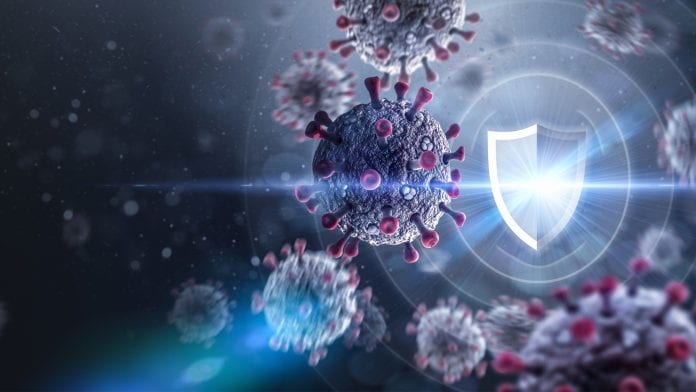
A new study has confirmed that T cells play an important role in the body’s response to COVID-19.
The findings show that a multi-layered, virus-specific immune response is important for controlling the virus during the acute phase of the infection and reducing the severity of the disease, with the bulk of the evidence pointing to a much bigger role for T cells than antibodies.
The study has been carried out by researchers at La Jolla Institute for Immunology and has been published in the journal Cell.
COVID-19 and the immune system
When COVID-19 enters the body, the innate immune system launches a broad and unspecific attack against the intruder, releasing waves of signalling molecules that incite inflammation and alert the immune system’s precision forces to the presence of a pathogen. The ‘adaptive immune system’ then launches a more specific attack against the virus, intercepting viral particles and killing infected cells. The adaptive immune system consists of antibodies, helper T cells, which assist B cells to make protective antibodies, and killer T cells which seek out virus-infected cells and eliminate them.
The researchers suggest from the findings that potential vaccines should elicit a broad immune response that includes antibodies, help, and killer T cells to ensure immunity.
Dr Alessandro Sette, who co-led the study with Shane Crotty, both professors in LJI’s Center for Infectious Disease and Vaccine Research, said: “What we didn’t see was any evidence that T cells contribute to a cytokine storm, which is more likely mediated by the innate immune system.”
The researchers wanted to capture the whole range of disease manifestation in order to identify differentiating immunological factors, finding that fully recovered individuals had measurable antibody, helper, and killer T cell responses, while the adaptive immune response in acute COVID-19 patients varied more widely with some lacking neutralising antibodies, other helper or killer T cells, or any combination thereof.
Co-first author and postdoctoral research, Carolyn Moderbacher, commented: “When we looked at a combination of all of our data across all 111 measured parameters we found that in general, people who mounted a broader and well-coordinated adaptive response tended to do better. A strong SARS-CoV-2 specific T cell response, in particular, was predictive of milder disease. Individuals whose immune response was less coordinated tended to have poorer outcomes.”
COVID-19 in the elderly
‘Naïve T cells’ are inexperienced T cells that have not met their viral match yet. As we age, the immune system’s supply of these types of T cells reduces, and fewer cells are available to be activated to respond to a new virus.
Crotty said: “Our observations could also explain why older COVID-19 patients are much more vulnerable to the disease. With increasing age, the reservoir of T cells that can be activated against a specific virus declines and the body’s immune response becomes less coordinated, which looks to be one factor making older people drastically more susceptible to severe or fatal COVID-19.”
The research shows that instead of antibodies, T cells and helper T cells, in particular, are associated with protective immune responses.
“This was perplexing to many people, but controlling a primary infection is not the same as vaccine-induced immunity, where the adaptive immune system is ready to pounce at time zero.” Crotty continued. “These findings indicate it is plausible T cells are more important in natural SARS-CoV-2 infection, and antibodies more important in a COVID-19 vaccine, although it is also plausible that T cell responses against this virus are important in both cases.”









